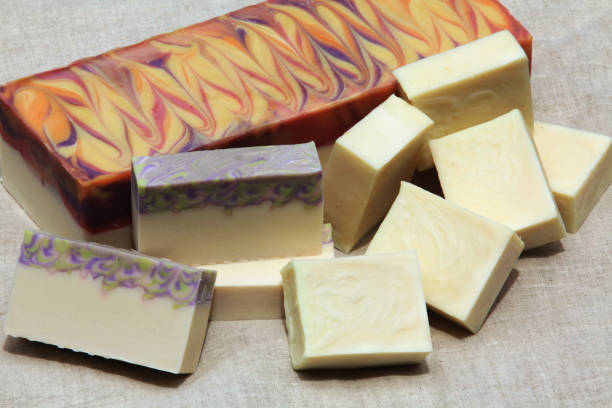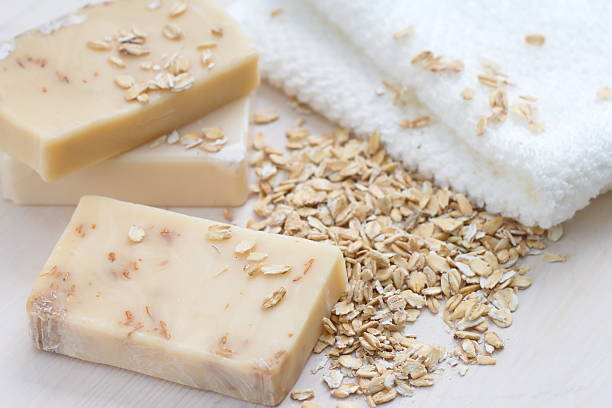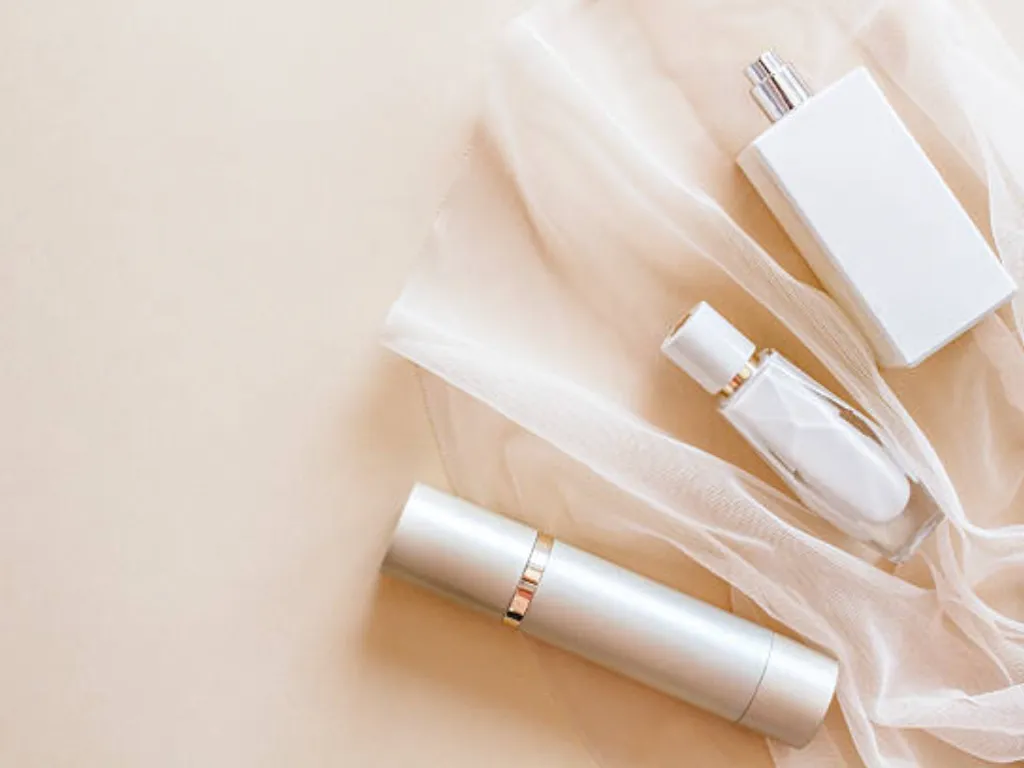आप इस पृष्ठ पर इसलिए आए हैं क्योंकि आप संवेदनशील त्वचा संबंधी समस्याओं से जूझ रहे हैं जो लालिमा और जलन का कारण बनती हैं जो आसानी से दिखाई देती हैं. उपयुक्त साबुन की खोज एक वास्तविक खोज बन जाती है. यह मार्गदर्शिका संवेदनशील त्वचा के लिए शीर्ष साबुन विकल्पों के लिए अनुशंसाएँ प्रदान करती है 2025. हमारा ध्यान एलर्जी-अनुकूल सफाई उत्पादों को विकसित करने पर है जो त्वचा में व्यवधान पैदा किए बिना प्रभावी ढंग से सफाई करते हैं. निम्नलिखित मार्गदर्शिका यह बताती है कि इस चालू वर्ष के दौरान संवेदनशील त्वचा के लिए कौन से त्वचा देखभाल उत्पाद सबसे अच्छा काम करते हैं.
साबुन कैसे काम करता है — संवेदनशील त्वचा की देखभाल के लिए एक त्वरित मार्गदर्शिका

संवेदनशील त्वचा के लिए सर्वोत्तम साबुन चुनने के लिए यह समझना महत्वपूर्ण है कि साबुन कैसे कार्य करता है. इसके मूल में, साबुन एक सर्फैक्टेंट है - हाइड्रोफिलिक वाला एक अणु (पानी को आकर्षित करने) सिर और एक हाइड्रोफोबिक (तेल आकर्षित करने वाला) पूँछ. यह दोहरी प्रकृति इसे गंदगी से जुड़ने की अनुमति देती है, तेल, और अशुद्धियाँ, पानी को उन्हें साफ करने में सक्षम बनाना. अधिकांश प्रकार की त्वचा के लिए, यह प्रक्रिया सीधी है. लेकिन संवेदनशील के लिए, एलर्जी प्रवण त्वचा, गलत साबुन एपिडर्मल बाधा को बाधित कर सकता है, प्राकृतिक लिपिड छीन रहा है और आपको जलन या सूखापन के प्रति संवेदनशील बना रहा है.
साबुन का पीएच स्तर यहां एक महत्वपूर्ण भूमिका निभाता है. मानव त्वचा लगभग थोड़ा अम्लीय पीएच पर बैठती है 4.5 को 5.5, जो इसके सुरक्षात्मक एसिड मेंटल का समर्थन करता है. पारंपरिक क्षारीय साबुन, अक्सर pH के साथ 9 या उच्चतर, त्वचा का पीएच बढ़ा सकता है, इस अवरोध को कमजोर करना और असुविधा उत्पन्न करना. मैंने इसे प्रत्यक्ष रूप से देखा है—हाई-पीएच बार का उपयोग करने के बाद, कुछ ही घंटों में मेरी त्वचा कड़ी और कच्ची महसूस हुई. संवेदनशील त्वचा के लिए सबसे अच्छा साबुन, तब, त्वचा के प्राकृतिक पीएच के करीब तैयार किया गया है, अक्सर सिंथेटिक डिटर्जेंट का उपयोग करते हैं (पाप का) सच्चे साबुनों के बजाय. ये सौम्य क्लींजर अशुद्धियों को प्रभावी ढंग से दूर करते हुए व्यवधान को कम करते हैं. ग्लिसरीन या पौधे-आधारित एमोलिएंट्स जैसे तत्व जलयोजन का समर्थन कर सकते हैं, यह सुनिश्चित करना कि आपकी त्वचा संतुलित रहे. संवेदनशील त्वचा वाले हमारे लिए, यह समझदारी से सफाई करने के बारे में है - उस नाजुक संतुलन को बनाए रखने के बारे में.
संवेदनशील त्वचा के लिए जिन सामग्रियों से बचना चाहिए — अपनी त्वचा को सुरक्षित रखें 2025

संवेदनशील त्वचा के लिए उपयुक्त साबुन के चयन के लिए इस बात का ज्ञान आवश्यक है कि किन सामग्रियों से परहेज किया जाना चाहिए. मानक साबुन में कार्यात्मक यौगिक होते हैं जो एलर्जी से ग्रस्त त्वचा के लिए समस्याएँ पैदा कर सकते हैं. इन बिंदुओं के टूटने से आप हानिकारक तत्वों की पहचान कर सकते हैं जो आपकी त्वचा की रक्षा करते हैं. यहाँ किस बात का ध्यान रखना है.
- सल्फेट्स (उदा।, सोडियम लॉरिल सल्फेट – एसएलएस, सोडियम लौरेठ सल्फेट – एसएलईएस): सर्फेक्टेंट एसएलएस और एसएलईएस (सोडियम लॉरिल सल्फेट और सोडियम लॉरेथ सल्फेट) शक्तिशाली झाग बनाते हैं लेकिन वे संवेदनशील त्वचा के लिए बहुत कठोर होते हैं. इन उत्पादों द्वारा प्राकृतिक लिपिड को हटाने से त्वचा शुष्क और चिड़चिड़ी हो जाती है. पहले सल्फेट वाले साबुन का उपयोग करने से झाग के प्रभाव के बावजूद शाम भर मेरी त्वचा तंग और खुरदरी महसूस होती थी.
- खुशबूएस: व्यक्तिगत देखभाल उत्पादों में उपयोग किए जाने वाले सिंथेटिक परफ्यूम लोगों में एलर्जी प्रतिक्रियाओं के मुख्य ट्रिगर में से एक के रूप में काम करते हैं. इन पदार्थों की थोड़ी मात्रा से त्वचा में लालिमा और खुजली हो सकती है. सुगंध-रहित विकल्पों को चुनें—उन्हें "बिना सुगंध वाले" के साथ भ्रमित न करें,जो मास्किंग एजेंटों को छिपा सकता है. खुजली वाले दाने विकसित होने के मेरे अनुभव के माध्यम से एक सुगंधित साबुन ने मुझे इस अंतर के बारे में सिखाया.
- पैराबेंस: पैराबेंस में पाए जाने वाले परिरक्षक रसायन मिथाइलपरबेन और प्रोपाइलपरबेन संवेदनशील त्वचा में जलन पैदा कर सकते हैं. शोध से पता चलता है कि अंतःस्रावी व्यवधान हो सकता है लेकिन वैज्ञानिकों ने निश्चित परिणाम स्थापित नहीं किए हैं. मैं अपनी त्वचा के लिए सबसे अच्छा विकल्प चुनते समय संवेदनशील त्वचा साबुन के जोखिमों से दूर रहना पसंद करता हूं, भले ही उनकी उत्पत्ति कुछ भी हो.
- शराब (उदा।, इथेनॉल, isopropyl): इथेनॉल और आइसोप्रोपिल जैसे अल्कोहल-आधारित अवयवों का त्वचा पर सूखने का प्रभाव बदतर हो जाता है क्योंकि वे सफाई प्रक्रिया को तेज कर देते हैं।. धोने के बाद संवेदनशील त्वचा पर अल्कोहल मिलाना एक अतिरिक्त झटका जैसा लगता है क्योंकि यह शुष्कता को बढ़ा देता है.
- कृत्रिम रंग: चमकीले नीले या लाल रंग उत्पन्न करने वाले कृत्रिम रंगों का उपयोग संवेदनशील त्वचा के लिए संभावित एलर्जी के रूप में जोखिम पैदा करता है. इन पदार्थों के संपर्क में आने पर प्रतिक्रियाशील व्यक्तियों की त्वचा में संपर्क जिल्द की सूजन विकसित होने की प्रवृत्ति होती है. यहां सादा और सरल काम बेहतर काम करता है.
में 2025, संवेदनशील त्वचा के लिए सबसे अच्छा साबुन इन्हें पूरी तरह से छोड़ देता है. मैं अपने दैनिक अभ्यास के रूप में लेबल स्कैनिंग पर भरोसा करता हूं क्योंकि यह मेरी त्वचा को बड़ी समस्याओं से बचाता है. संवेदनशील त्वचा के लिए कौन सा साबुन उत्पाद सबसे उपयुक्त विकल्प प्रदान करता है?? एक साबुन जो आपकी त्वचा की बाधाओं को नुकसान पहुंचाने के बजाय उन्हें बनाए रखता है.
संवेदनशील त्वचा के लिए सर्वोत्तम साबुन के प्रकार — शीर्ष सिफ़ारिशें

संवेदनशील त्वचा के लिए सबसे अच्छा साबुन 2025 यह एक ऐसा प्रश्न बना हुआ है जिसका उत्तर देने की आवश्यकता है. एक साबुन निर्माता के रूप में, हम आपको यह समझने में मदद करेंगे कि कौन सा साबुन प्रकार आपको कोमल लेकिन प्रभावी फॉर्मूलेशन दिखाकर एलर्जी-प्रवण त्वचा को लाभ पहुंचाते हैं. निम्नलिखित विवरण आवश्यक श्रेणियां प्रस्तुत करता है जो त्वचा स्वास्थ्य अखंडता को बनाए रखते हुए प्रभावी परिणाम उत्पन्न करते हैं.
- कैसाइल साबुन: पौधे के तेल से प्राप्त कैस्टिले साबुन एक सौम्य प्राकृतिक सफाई एजेंट बनाने के लिए जैतून और नारियल के तेल का उपयोग करता है. इस उत्पाद का सैपोनिफाइड सफाई समाधान त्वचा को कठोर रसायनों के संपर्क में लाए बिना प्रभावी सफाई परिणाम देता है. साबुन मेरी त्वचा पर शुष्कता के बिना एक नरम बनावट बनाता है जबकि संवेदनशील त्वचा के प्रकारों को आवश्यक जलयोजन प्रदान करता है.
- क्षमा करें बार्स (सिंथेटिक डिटर्जेंट साबुन): पारंपरिक साबुनों के विपरीत क्योंकि वे हल्के सर्फेक्टेंट का उपयोग करते हैं जो पीएच स्तर पर काम करते हैं 5.5. इन साबुनों में त्वचा के अनुकूल पीएच संतुलन क्षारीय साबुनों को शुष्क जकड़न पैदा करने से रोकता है. सिंडेट्स पर स्विच करने से मुझमें पूर्ण परिवर्तन आया क्योंकि उन्होंने धोने के बाद की असुविधा को समाप्त कर दिया.
- दलिया आधारित साबुन: ओटमील-आधारित साबुन में कोलाइडल ओटमील होता है जो संवेदनशील त्वचा को आराम देने के लिए एक उत्कृष्ट घटक के रूप में कार्य करता है।. इस उत्पाद के सूजन-रोधी गुण त्वचा की लालिमा और खुजली को कम करते हैं जबकि इसकी नरम बनावट बिना कठोरता के धीरे से साफ हो जाती है. जब मैं बुखार के दौरान ओटमील साबुन का उपयोग करता हूं तो मुझे तुरंत राहत मिलती है.
- तेल आधारित क्लींजिंग बार्स: शिया बटर या जोजोबा तेल जैसे इमोलिएंट्स से युक्त, ये साबुन एक साथ सफाई और नमी प्रदान करते हैं. ये साबुन त्वचा के जलयोजन को बनाए रखने के लिए सबसे अच्छा काम करते हैं क्योंकि ये नमी के नुकसान से बचाते हैं, खासकर जब सफाई के बाद आपकी त्वचा शुष्क हो जाती है. ये क्लींजिंग बार बिना किसी खुरदरी बनावट के एक चिकनी फिनिश प्रदान करते हैं.
- ग्लिसरीन साबुन: इस प्रकार के साबुन त्वचा से अशुद्धियों को दूर करने की क्षमता के साथ जलयोजन गुणों को जोड़ते हैं. इन साबुनों की कोमल प्रकृति संवेदनशील त्वचा वाले लोगों के लिए एक बुनियादी पसंद के रूप में कार्य करती है क्योंकि वे कठोर साबुनों के कारण होने वाले शुष्कन प्रभावों को रोकते हैं।. इन उत्पादों ने वर्षों तक लगातार मेरी त्वचा को आराम बनाए रखा है.
इन साबुन प्रकारों से त्वचा की बाधा पर विशेष ध्यान दिया जाता है जो उन्हें संवेदनशील त्वचा देखभाल के लिए इष्टतम विकल्प बनाता है. संवेदनशील त्वचा के लिए कौन सा साबुन उत्पाद सबसे उपयुक्त विकल्प प्रदान करता है?? हमारा लक्ष्य एक विशिष्ट क्लींजिंग फॉर्मूला विकसित करना है जो आपकी त्वचा की कोमल देखभाल प्रदान करता है 2025.
संवेदनशील त्वचा के लिए सर्वश्रेष्ठ साबुन चुनते समय ध्यान देने योग्य मुख्य कारक
संवेदनशील त्वचा के लिए सही साबुन का चयन सावधानीपूर्वक विचार करने की मांग करता है क्योंकि प्रत्येक व्यक्ति को एक अलग समाधान की आवश्यकता होती है. सफाई उत्पादों की पहचान करने में आपकी सहायता के लिए कई आवश्यक तत्व मौजूद हैं जो जलन पैदा किए बिना आपकी त्वचा को प्रभावी ढंग से साफ करते हैं. निम्नलिखित मूल्यांकन मानदंड आपको संपूर्ण त्वचा को आरामदायक बनाए रखने में मदद करेंगे 2025.
- पीएच संतुलन: आपकी त्वचा के बीच पीएच स्तर बनाए रखता है 4.5 को 5.5 जो इसका सुरक्षात्मक एसिड आवरण बनाता है. इस pH रेंज के साबुन त्वचा को नुकसान से बचाते हैं जबकि उच्च-क्षारीय साबुन (पीएच 9+) त्वचा की नमी दूर करें और संवेदनशीलता बढ़ाएं. जब मैंने पीएच-संतुलित साबुन का उपयोग करना शुरू किया तो मेरी त्वचा की स्थिति में सुधार हुआ क्योंकि वे जकड़न के बिना बेहतर आराम प्रदान करते हैं.
- सामग्री: अपनी त्वचा की देखभाल के लिए सामग्री चुनते समय हाइड्रेटिंग या सुखदायक एडिटिव्स का चयन करते समय सल्फेट्स और सुगंध से बचें. एलर्जी-प्रवण त्वचा के लिए उपचार प्रक्रिया तब अधिक प्रभावी हो जाती है जब ये तत्व सूखापन को कम करने में मदद करते हैं. अब मैं अपनी नियमित दिनचर्या के हिस्से के रूप में लाभकारी घटकों के लिए उत्पाद लेबल का निरीक्षण करता हूं क्योंकि इससे महत्वपूर्ण लाभ मिलते हैं.
- बनावट: साबुन की कोमलता उनकी बनावट पर निर्भर करती है क्योंकि मलाईदार या तेल-आधारित संस्करण झाग वाले साबुन की तुलना में बेहतर काम करते हैं. अत्यधिक झाग में मौजूद मजबूत सर्फेक्टेंट संवेदनशील त्वचा की स्थिति को संभावित रूप से खराब कर सकते हैं. कुछ साबुनों की चिकनी बनावट मेरी त्वचा को शुष्कता के बजाय पोषण प्रदान करती है.
- प्रमाणपत्र और परीक्षण: "हाइपोएलर्जेनिक" या "त्वचा विशेषज्ञ-परीक्षणित" जैसे लेबल एक प्रारंभिक बिंदु प्रदान करते हैं, हालाँकि वे फुलप्रूफ नहीं हैं. त्वचा की अनुकूलता को सत्यापित करने के लिए एक पैच परीक्षण आवश्यक रहता है, भले ही कोई विशेष संवेदनशील त्वचा साबुन आपके लिए अच्छा काम करता हो.
इन कारकों के कारण सर्वोत्तम संवेदनशील त्वचा साबुन की खोज आसान हो जाती है. निम्न तालिका आवश्यक सामग्री प्रदान करती है जो संवेदनशील त्वचा के प्रकारों को लाभ पहुंचाती है:
| घटक | फ़ायदा |
| एक प्रकार का वृक्ष मक्खन | बैरियर को मॉइस्चराइज़ और मजबूत करता है |
| कैमोमाइल अर्क | आराम देता है और सूजन को कम करता है |
| niacinamide | जलयोजन को बढ़ाता है और लालिमा को शांत करता है |
| ग्लिसरीन | कोमलता के लिए नमी बरकरार रखता है |
| जई का अर्क | खुजली और जलन से राहत दिलाता है |
मिलिए oully: स्वस्थ रहने का आपका मार्ग, खुशहाल संवेदनशील त्वचा 2025
औली में आपका स्वागत है, जहां हम एक विश्वसनीय निजी लेबल निर्माता के रूप में संवेदनशील त्वचा के लिए साबुन को फिर से परिभाषित करते हैं. में 2025, हम उद्योग में सर्वश्रेष्ठ के साथ खड़े हैं, उन्नत उत्पादन तकनीकों को विचारशील फॉर्मूलेशन के साथ मिश्रित करना. हमारे साबुन- हमारे पीएच-संतुलित की तरह, जई के अर्क और ग्लिसरीन के साथ खुशबू रहित बार्स - आपकी त्वचा की बाधा का पोषण करते हुए धीरे से साफ करें. हम गुणवत्ता के प्रति प्रतिबद्ध हैं, प्रत्येक बैच को सटीकता के साथ तैयार करना, और हम आपकी विशिष्ट आवश्यकताओं को पूरा करने के लिए अपना दृष्टिकोण तैयार करते हैं. यह स्वस्थ प्रदान करने के बारे में है, सहजता से त्वचा को खुश रखें. औली अंतर का अनुभव करने के लिए उत्सुक? आज ही पहुंचें आपके आदर्श संवेदनशील त्वचा समाधान के लिए.
















